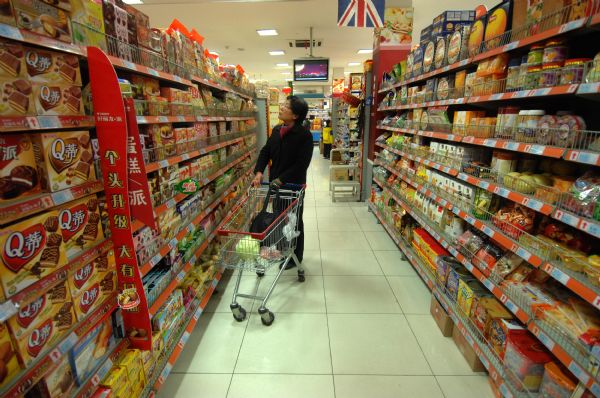
A woman chooses foods in a supermarket in Hangzhou, capital of east China's Zhejiang Province, Feb. 15, 2011. (Xinhua/Huang Zongzhi)
BEIJING, March 3 (Xinhua) -- With inflation in China staying at steadily high levels over the past months, complaints surfaced in the west that China's reckless monetary expansion and rising labor costs pushed up inflation which could spill over to the rest of the world.
Beijing-based economists, however, said that some people in the west distorted and misread China's economy, and what they complained about were inconsistent with facts.
Actually, China is also a victim of global inflation, which is mainly caused by America's ultra-loose monetary policy, they said.
To ward off the negative impacts of the global financial crisis and avoid a sharp economic slowdown, China implemented a 4-trillion yuan stimulus package at the end of 2008, which included significant bank loans.
The stimulus measures were hailed by most countries in the world as a timely boost, not only to the Chinese economy but also to the global economy.
The measures did help keep the Chinese economy growing 9.2 percent in 2009 and 10.3 percent last year. However, negative impacts also emerged as the monetary expansion, which highlighted more than 1.8 billion yuan of new loans, also sowed the seeds of inflation.
But is it serious enough to worsen global inflation?
Guo Tianyong, a professor with the Central University of Finance and Economics, said that since the yuan is not a global reserve currency, its domestic monetary expansion could hardly spill over to the outside.
The global commodity price surge is due to the U.S. quantitative easing monetary policy and the low interest rates by some developed economies, said Li Daokui, a central bank monetary policy advisor. |

